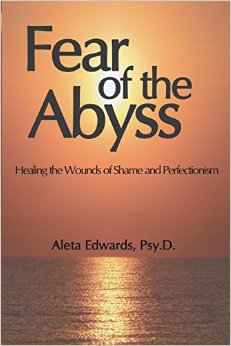|
I don’t know when things began to be so misunderstood, but our cultures clearly contribute to perfectionism, shame, low self-esteem and a general dissatisfaction with the self. Children learn young that they are supposed to be the “best,” and that involves as many people as possible not doing as well as they do. We are supposed to build close relationships at the same time our “success” involves those around us not doing well. This seems to me a sick system, but we are raised in it. As a therapist who has treated numerous people who did manage to be the supposed best—even though they were intensely unhappy—as well as those who did not, I see what this does to people. I have always told my clients that it is good to know what they are “good” at and what they are not. When I started out, I remember being shocked that people had a hard time with this idea, that it was too loaded to be matter-of-fact. And yet, people pour into therapy complaining of having low self-esteem. What is self-esteem really but seeing ourselves as compared to others and coming out favorably or unfavorably? Far too often people compare the act others put on to their own real feelings. That is like comparing how you look as soon as you wake up to someone dressed for an event.
6 Comments
I think shame and a feeling of being bad or unacceptable come after learning we are separate. We all have to learn this, like it or not. Then, if we are accepted in our separateness, we have a chance to not be filled with shame and a longing to be better in some vague way. People who had miserable, abusive childhoods were obviously not given this and in fact are given multiple messages that they are bad. That is the essence of shame, that we are somehow bad in a core kind of way. Yet, there are non-abusive homes in which the parents do not know how to let their children know that they are okay in their being different from them. But some special parents do not need their children to be identical to them, to mirror how they wish they were. My mother was such a person. She never studied psychology but knew in her heart in a truly wise way.
Parents are the major influence on the self-esteem of their children, and yet sometimes get so wrapped up in wanting them to do well or to be the “best” at something, they forget the effect they are having. I think it is helpful to look at what not to do. When my daughter was five and a half, we adopted her from South America. She went to preschool for a time and then Kindergarten. I speak Spanish but she learned English very quickly.
When she was in Kindergarten, she took a standardized test and scored in the 97th percentile in language skills. When I picked her up from school and we were walking to the car, I said it was amazing that she did so well, especially as she was still learning English. We got to the car, and seconds afterwards a classmate and his mother were getting to their car. The mother was screaming at this child, whom I will call Chuck. She yelled, “You just did AVERAGE! AVERAGE! How do you think that makes me feel?” and she went on to berate him as he got into the car with his head down. I didn’t say anything to her, because this kind of emotional abuse is not illegal and I feared making things worse for the little boy. My daughter said to me, “I guess Chuck’s mom isn’t so happy with him.” She asked me why the mother was so angry, and I tried my best to answer her. |
Aleta Edwards, Psy.D.I am a psychotherapist in private practice, with a strong interest in shame and perfectionism. I will periodically post my thoughts about these topics and other observations relating to emotional health. Archives
March 2022
Categories
All
|

 RSS Feed
RSS Feed
